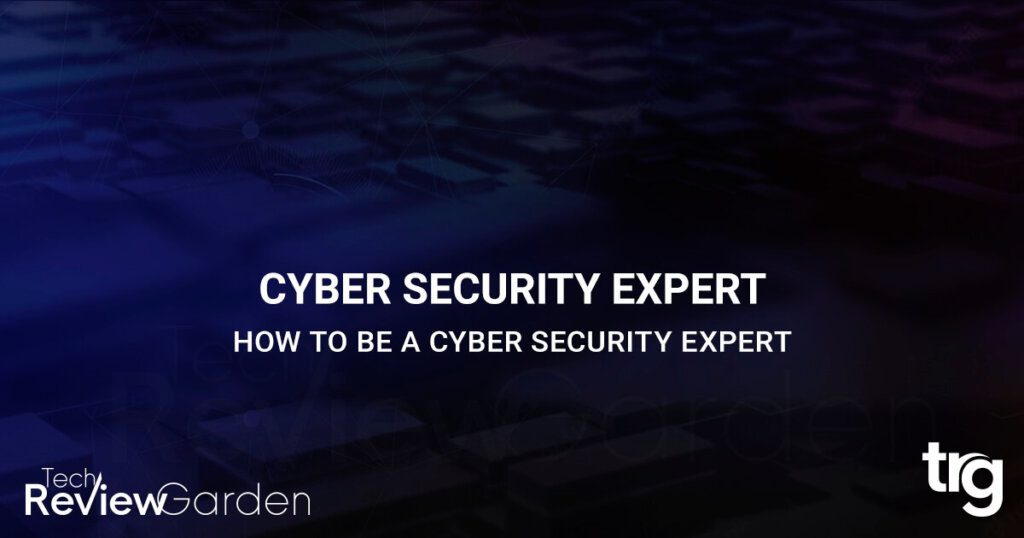Interested to know how to be a cyber security expert? Or looking to become a cybersecurity specialist?
As technology continues to advance and more and more information is shared online, the need for Cyber Security professionals has become increasingly important. A cyber security expert is a professional who has the skills and knowledge necessary to protect computer systems, networks, and sensitive information from cyber-attacks.
If you’re interested in becoming a cyber security expert, this guide is for you. In this article, we’ll cover the basics of what a cyber security expert does, the skills and knowledge you need to develop, and the resources available to help you get started.
So, let’s get started on how to be a Cyber Security expert!
Table of Contents
Who is a Cyber Security Expert?
A Cyber Security Expert is an individual who possesses specialized knowledge and skills in the field of cyber security. These professionals work to secure technology systems and networks from cyber attacks, data breaches, and other digital threats.
Cyber Security specialists must have in-depth knowledge of computer science and programming languages. They analyze potential risks and develop effective security solutions to safeguard sensitive information.
As cyber threats continue to increase, the demand for Cyber Security experts has also grown.
Cyber Security experts play a critical role in ensuring the safety and protection of digital infrastructure. Those who choose a career in Cyber Security must continually stay up-to-date with the latest technology and cyber threats to provide effective protection for their clients.
What Do Cyber Security Experts Do?
Cyber Security Experts play a crucial role in managing and safeguarding computer systems from any form of cyber threat. They are responsible for protecting and securing the integrity, confidentiality, and availability of digital information.
Cyber Security Experts use various methods and tools to monitor and assess cyber threats, vulnerabilities, and risks. They develop and implement strategic plans and protocols to prevent, detect, and respond to cyber-attacks, breaches, and incidents. Their roles and responsibilities may include conducting security audits and assessments, testing and evaluating the effectiveness of security systems and measures, creating incident response plans, and training employees on security awareness and best practices.
Cyber Security Experts must have extensive knowledge and understanding of cyber security, data protection laws, and industry standards to effectively identify and mitigate security risks.

Why Cyber Security is Important?
- First, cyber threats can cause significant financial losses, reputational damage, and legal liability for organizations and individuals.
- Second, cyberattacks can disrupt essential services, such as healthcare, banking, transportation, and utilities, which can have severe consequences for public safety and well-being.
- Third, Cyber Security is essential for protecting personal information, intellectual property, and national security.
What’s the Demand for Cyber Security Experts?
With the rising number of cyber threats, the demand for Cyber Security experts is at an all-time high. Cyber Security is essential for all businesses, government organizations, and even individuals.
Therefore, the demand for professionals who are well-versed in cyber security is continuously increasing. Numerous job opportunities are available for Cyber Security engineers, security professionals, and security engineers, making it a highly lucrative career path. With the increasing number of cyberattacks in recent years, demand for Cyber Security professionals is expected to rise even further in 2023.
Many individuals are interested in becoming a cyber security professional due to the job’s significance and lucrative opportunities it offers. The requirement for Cyber Security professionals is only going to increase, creating many more opportunities for those interested in pursuing a career in this field.
How to be a Cyber Security Expert: The Essential Skills
To become a cyber security expert, you need to have a combination of technical skills, knowledge of the latest threats, and an understanding of how cybercriminals operate. Here are the essential skills you need to master:
Skills Required to Become a Cyber Security Expert
To become a Cyber Security expert, you need to possess the following skills:
Analytical and critical thinking: Cyber Security experts must be able to analyze complex data, identify patterns, and make informed decisions based on evidence.
Problem-solving: Cyber Security experts must be able to identify potential risks, vulnerabilities, and threats and develop strategies to mitigate them.
Communication: Cyber Security experts must be able to explain technical concepts to non-technical stakeholders and collaborate with colleagues and clients effectively.
Technical skills: Cyber Security experts must have a solid understanding of computer networks, operating systems, programming languages, and Cyber Security tools and technologies.
Technical Skills
Network Security
You should have a solid understanding of how networks work, including protocols, encryption, and firewalls.
Operating Systems
You need to have expertise in operating systems such as Windows, Linux, and MacOS.
Programming Languages
Knowing programming languages such as Python, Java, and C++ is essential for creating and analyzing security software.
Cyber Security Tools
Familiarity with security tools such as antivirus software, intrusion detection systems, and vulnerability scanners is necessary for identifying and mitigating threats.

Top Cyber Security Certifications
- Certified Information Systems Security Professional (CISSP)
- Certified Ethical Hacker (CEH)
- CompTIA Security+
- Certified Information Security Manager (CISM)
- GIAC Security Essentials Certification (GSEC)
- Cisco Certified Network Associate Security (CCNA Security)
- Certified Cloud Security Professional (CCSP)
- Offensive Security Certified Professional (OSCP)
- Certified Information Systems Auditor (CISA)
- Certified in Risk and Information Systems Control (CRISC)
Knowledge of the Latest Threats
Malware
You should have a comprehensive understanding of malware, including viruses, Trojans, and worms.
Social Engineering
Knowing how cybercriminals use social engineering tactics such as phishing and spear-phishing to gain access to sensitive data is crucial.
Cloud Security
Understanding the security risks associated with cloud-based technologies is essential, given the increasing reliance on cloud services.
Mobile Security
With the rise of mobile devices, mobile security has become a significant concern. Familiarity with mobile operating systems and security risks associated with mobile devices is necessary.
Understanding How Cybercriminals Operate
Cybercrime Trends
Stay up-to-date with the latest trends and tactics used by cybercriminals to identify vulnerabilities and mitigate risks.
Dark Web
Familiarity with the dark web, including the tools and resources available to cyber criminals, can help you understand how to mitigate risks associated with the dark web.
Threat Intelligence
Gathering threat intelligence is an essential part of the cyber security process. You should know how to gather and analyze data to identify potential threats.

What Are Cyber Security Job Roles?
Cyber Security expert work opportunities are expanding rapidly due to the increasingly complex nature of today’s technological landscape. Cyber Security professionals are in high demand across a range of industries and sectors to help organizations defend their digital assets and protect against security breaches. Here are 11 Cyber Security job roles:
- Security Analyst
- Network Security Engineer
- Cybersecurity Consultant
- Information Security Analyst
- Ethical Hacker
- Cryptographer
- Chief Information Security Officer (CISO)
- Security Systems Administrator
- Security Software Developer
- Malware Analyst
- Threat Hunter
Overall, Cyber Security experts play a critical role in safeguarding sensitive data and ensuring the integrity and security of computer systems and networks.
What is the Average Salary of a Cybersecurity Professional?
The average salary of a cybersecurity professional varies depending on several factors such as experience, location, and job title. According to data from the Bureau of Labor Statistics, the median annual wage for information security analysts, a common job title in cybersecurity, was $103,590 in March 2023.
However, entry-level positions in cybersecurity may offer salaries below this average. On the other hand, highly specialized roles such as a chief information security officer (CISO) or a cybersecurity consultant can earn well over six figures annually.
Additionally, geographic location can play a role in salary as some areas, such as Silicon Valley or New York City, may offer higher salaries due to a higher cost of living.
Overall, the cybersecurity industry is known for offering competitive salaries and benefits packages to attract and retain top talent.

FAQs
How to be a network security specialist?
To become a network security specialist, one should pursue a degree in computer science, information technology, or cybersecurity. It is also essential to gain practical experience in network security through internships or entry-level positions.
Network security professionals should have knowledge of firewalls, intrusion detection systems, and other network security protocols. Continuing education and certification programs can help individuals stay up-to-date with the latest developments in network security.
How long does it take to become a cyber security expert?
The time it takes to become a cybersecurity expert can vary based on individual circumstances. It typically takes several years of education and practical experience to become proficient in cybersecurity.
A bachelor’s degree in cybersecurity or a related field can take four years to complete. However, many cybersecurity professionals pursue master’s degrees or gain practical experience through internships or entry-level positions, which can take additional years.
Continuing education and professional certifications are also essential for cybersecurity professionals to stay current with the latest cybersecurity trends and technologies.
How can you learn the skills necessary to be a cyber security expert?
You can learn the skills necessary to be a cyber security expert through a combination of formal education, specialized training programs, online courses, self-study, and hands-on experience.
How do I start a cyber security job with no experience?
To start a cyber security job with no experience, focus on obtaining relevant certifications, participate in CTF competitions, contribute to open-source projects, build a portfolio of personal projects, and network with professionals in the field.
What Degree Is Needed to Be a Cybersecurity Engineer?
A degree in computer science, information technology, or a related field is typically needed to become a cybersecurity engineer. However, relevant certifications and hands-on experience can also be valuable in lieu of a degree.
What are typical interview questions for a career in cybersecurity?
Typical interview questions for a career in cybersecurity may include inquiries about network security, vulnerability assessment, incident response, secure coding practices, and knowledge of compliance frameworks and regulations.
Where can I find resources for a career in cybersecurity?
Resources for a career in cybersecurity can be found in various forms such as online courses, tutorials, blogs, books, professional associations, industry conferences, and online communities.
Who is eligible for cyber security?
Anyone with an interest and passion for cyber security can be eligible. While a background in computer science or information technology can be beneficial, individuals from diverse educational and professional backgrounds can enter the field by acquiring the necessary skills and certifications.
Conclusion: How to be a Cyber Security Expert
In conclusion, becoming a cyber security expert requires a combination of education, specialized training, practical experience, and continuous learning. It is a dynamic field that demands staying up to date with the latest threats and technologies.
By obtaining a solid foundation in computer science or a related field, specializing in cyber security, gaining hands-on experience, and obtaining relevant certifications, individuals can develop the skills and knowledge necessary to excel in this field.
Additionally, honing communication and problem-solving skills, networking with professionals, and seeking mentorship can further enhance one’s journey to becoming a cyber security expert. With dedication, passion, and a commitment to ongoing learning, individuals can embark on a fulfilling and rewarding career in the ever-growing field of cyber security.
- NordVPN New Sales 30% OFF!!!
- Ultimate Photography Bundle for new users
- Get 4 Months Free on All Shared Hosting Plans With Code, wpe4free. Buy now!
Save 35% On Tools Tailored For Your Amazon Business
Fix 6 Common WordPress Errors
If you’re looking for more tips on how to fix WordPress errors, we’ve got you covered. Check out our following post on common WordPress errors and how to fix them.
- How to Fix Internal Server Error 500
- How to Fix Syntax Errors in WordPress
- How to Fix The WordPress Memory Exhausted Error
- How to Fix the WordPress White Screen of Death
- How to Fix the Error Establishing a Database Connection in WordPress
- How to Fix Briefly Unavailable for Scheduled Maintenance Errors in WordPress











